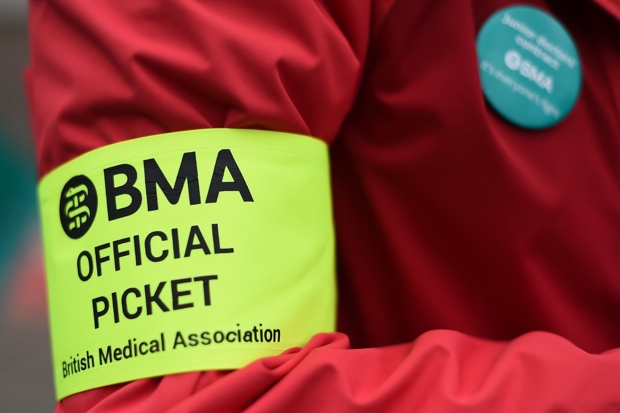Everyone respects doctors. Some people even love them. They may not be quite as nobly exalted as nurses but they’re still worthier-than-thee. And why not? It’s a job that’s as demanding as it is vital. Everyone knows this too, which is one reason why no-one objects to the fact that doctors with modest seniority are amongst the top 20 percent of earners and those with greater experience still higher up the income scale. It is a profession and deserves to be rewarded as such.
Rewards come in different forms, of course, and respect is just as important as cold, hard, cash. Junior doctors felt disrespected by the terms of the government’s proposed new contract for their services (in England). Who the hell was Jeremy Hunt to dictate terms to them? Who in their right mind would take Mr Hunt’s side in any prolonged and public dispute with the profession? Quite.
Even so, professional self-respect – as well as public relations – demanded that the doctors argue that the dispute was about something grander than mere remuneration. Doctors, being noble public servants, weren’t looking out for themselves. No, they cared only for their patients. The government’s proposals would jeopardise ‘patient safety’. And who – what kind of bounder – would wish to risk that?
Except this was, to use the technical term, balls. All of it. Heaven help anyone who suggested, during the dispute, that the doctor’s motives might just have been a teensy bit less high-minded than they suggested. Only government poodles and assorted other varieties of NHS-hating rotters could possibly think that. All good people heart the NHS with all their heart.
Nevertheless, it was chiefly about money. Helpfully, we can see this clearly now thanks to a record of junior doctor WhatsApp conversations obtained by HSJ. The leak of messages sent amongst members of the BMA’s junior doctors’ committee reveals that:
The leadership of the British Medical Association’s junior doctors’ committee wanted to “draw this [dispute] right out” with “punctuated [industrial action] for a prolonged period” and tie “the DH up in knots for the next 16-18 months”.
JDC chair Johann Malawana told the group in December that the “best solution” might include playing out the dispute for so long that it would “force” the government “to impose [the contact] against our support”.
The strategy contrasts with public statements made by BMA leaders throughout the dispute asserting that the dispute could be resolved if the government was willing to negotiate. For example, on 23 February Dr Malawana said: “The government can avert this [strike] action by re-entering talks with the BMA and addressing rather than simply ignoring the outstanding issues and concerns junior doctors have.”
Despite protestations that the dispute was about “safety, not pay”, the issue of weekend pay was described late last year by a JDC executive member as “the only real red line” for junior doctors. This point was only finally conceded by the JDC on 7 May when it decided to re-enter negotiations.
However, Dr Malawana discussed conceding the weekend pay issue if the government increased the medical pay bill by £500m-£700m.
Although the BMA stated throughout the dispute it wanted to negotiate with the government, the leak reveals the JDC executive believed it “had nothing to talk about” as it was not willing to discuss weekend pay. This position only changed this month.
Well fancy that! It’s amazing how cash can improve patient safety. Now of course there is nothing wrong with the BMA and its junior doctors’ committee acting as a trade union, determined to get the best possible deal for its members. That’s what it is there to do and there may indeed be a good case for paying the very most junior doctors more.
But it is worth noting – and remembering – that self-interest, not disinterested public service, is just as important a driving factor amongst the professional unions as it is amongst blue-collar unions. Again, there is nothing discreditable about this; management will screw the workers if it can and vice versa.
And of course one can see why the junior doctors wished to maintain the pretence that the dispute was primarily over patient care and patient ‘safety’. That ennobled them while discrediting a heartless government. It gave the dispute a righteous quality and everyone enjoys the warmth generated by self-righteousness.
But beneath the sanctimonious proclamations of moral superiority lurked an eternal truth: it was just about cash. Cold, hard, cash. And, of course, politics. There’s nothing wrong with that but it’s as well to be honest about such things. Something to remember next time.







Comments